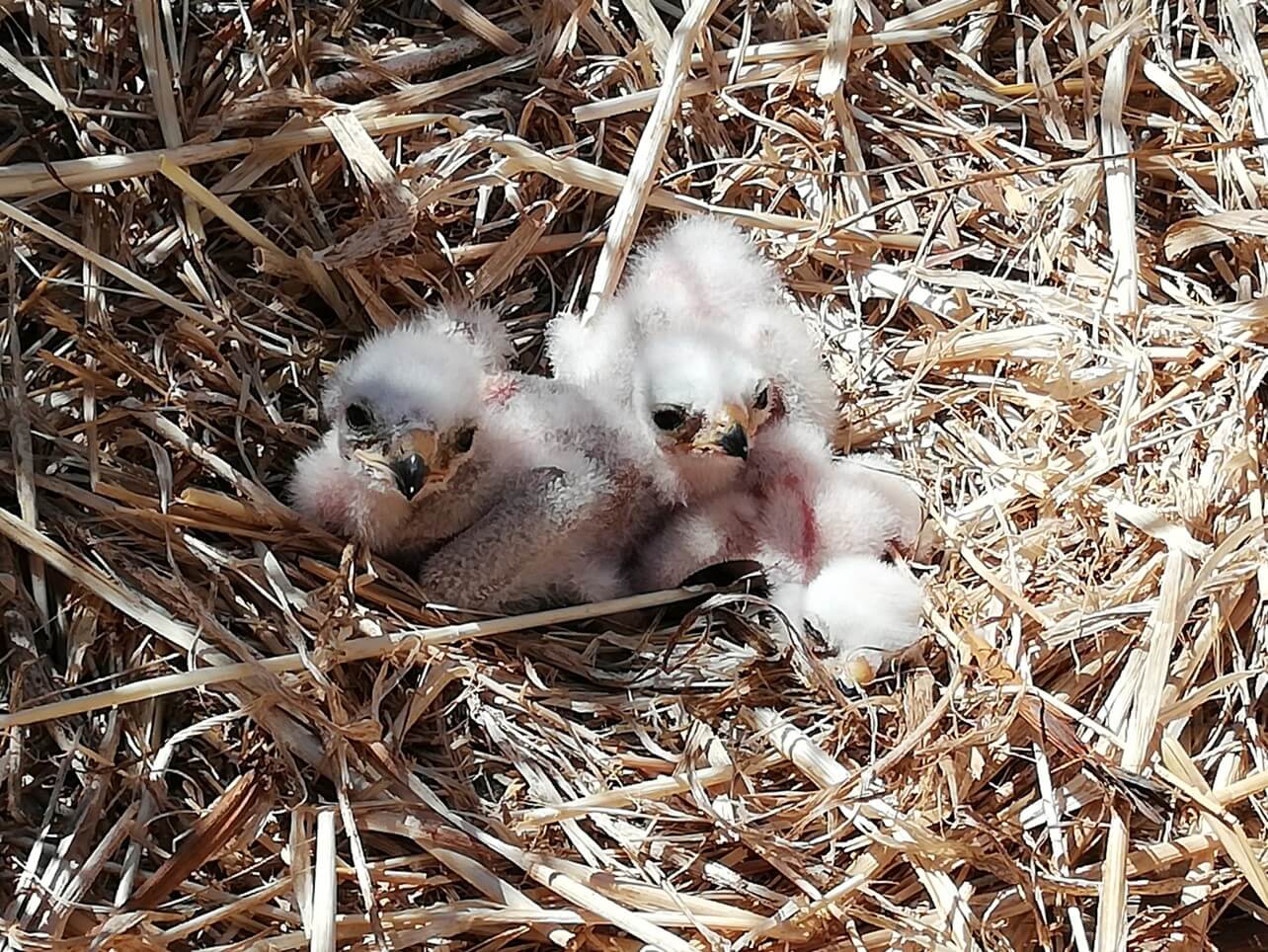Date
15 July 2021
National cereal producers unite to save endangered species
With the goal of promoting the Hunting Eagle’s preservation, the Continente Producers Club (CPC), the National Association of Protein, Oilseed and Cereal Producers (ANPOC) and the Research Centre on Biodiversity and Genetic Resources (CIBIO/BIOPOLIS) from the University of Porto, with the collaboration of the Institute for the Conservation of Nature and Forests (ICNF), joined in a project that aims to enhance the contribution of national wheat crops to the promotion of bird biodiversity, including that of threatened species such as this.

The Hunting Eagle is one of the most declining birds of the national terrestrial fauna, largely due to the replacement of the wheat and oats’ cereal crops by permanent meadows, whose cut is made earlier, coinciding with this species’ nesting period and which can cause the loss of eggs, offspring and sometimes adults too.
Farmers and landowners are actively helping to identify these birds’ colonies, sending CIBIO/BIOPOLIS and ICNF information about eagle sightings, the number of animals and, whenever possible, their gender, in addition to voluntarily implementing measures to protect nests and chicks (delimiting the space in which they are located, so that there is no activity of agricultural machinery and installing protection against predators, for example). So far, 13 harvests from 26 national producers have been monitored to implement these measures.
Through this initiative, the approximately 7 tonnes of flour used daily in Continente stores' bakeries already come from wheat fields in the Alentejo region, which are monitored in order to protect biodiversity and the preservation of endangered birds.
The Hunting Eagle (Circus pygargus), also known as Montagu's harrier, is the smallest of the European eagles and is only present in national territory from mid-March to September, later migrating to Africa. In Portugal, it is classified as 'endangered'.
The Continente Producers Club’s goal is to make national products of excellence available to customers, resulting from a partnership work with suppliers, supported by technical-scientific knowledge and which aligns the offer with consumer trends. In June, this year, the CPC established a 'Declaration for Sustainability' for its members, based on 11 principles and several initiatives (such as the Hunting Eagle protection project), to promote sustainable production and consumption and a food system that respects the environment.

The Hunting Eagle is one of the most declining birds of the national terrestrial fauna, largely due to the replacement of the wheat and oats’ cereal crops by permanent meadows, whose cut is made earlier, coinciding with this species’ nesting period and which can cause the loss of eggs, offspring and sometimes adults too.
Farmers and landowners are actively helping to identify these birds’ colonies, sending CIBIO/BIOPOLIS and ICNF information about eagle sightings, the number of animals and, whenever possible, their gender, in addition to voluntarily implementing measures to protect nests and chicks (delimiting the space in which they are located, so that there is no activity of agricultural machinery and installing protection against predators, for example). So far, 13 harvests from 26 national producers have been monitored to implement these measures.
Through this initiative, the approximately 7 tonnes of flour used daily in Continente stores' bakeries already come from wheat fields in the Alentejo region, which are monitored in order to protect biodiversity and the preservation of endangered birds.
“We are committed to protecting our country's fauna and flora, through biodiversity and environmental sustainability, and we believe that this project can have a very significant impact on the survival and recovery of this species that is currently disappearing from the Alentejo plains” explains Ondina Afonso, president of the CPC.
The Hunting Eagle (Circus pygargus), also known as Montagu's harrier, is the smallest of the European eagles and is only present in national territory from mid-March to September, later migrating to Africa. In Portugal, it is classified as 'endangered'.
The Continente Producers Club’s goal is to make national products of excellence available to customers, resulting from a partnership work with suppliers, supported by technical-scientific knowledge and which aligns the offer with consumer trends. In June, this year, the CPC established a 'Declaration for Sustainability' for its members, based on 11 principles and several initiatives (such as the Hunting Eagle protection project), to promote sustainable production and consumption and a food system that respects the environment.
